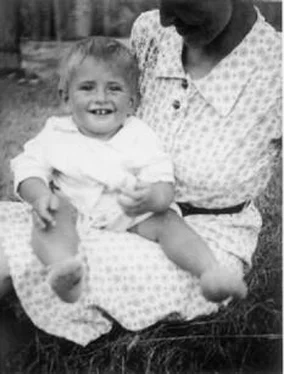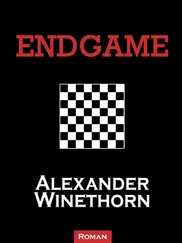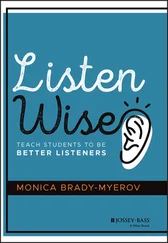Attempts by Regina and Joan to engage Bobby in schoolwork were usually fruitless. Bobby could concentrate on puzzles or chess for hours, but he fidgeted and grew restless when confronted with reading, writing, and arithmetic. Attending the Brooklyn public schools was also problematic. He was a loner and invariably separated himself from the other children, possibly because of acute shyness or fear of competition. By the time he reached the fourth grade, he’d been in and out of six schools—almost two a year—leaving each time because he wasn’t doing well in his studies or couldn’t abide his teachers, classmates, or even the school’s location. In frustration, Regina registered Bobby in a school for gifted children. He lasted one day and refused to go back.
Eventually, she found a school that was an appropriate match for her problematic son. In the fall of 1952, when Bobby was nine, Regina secured scholarship enrollment for him in Brooklyn Community Woodward, a progressive grade school of approximately 150 children. Housed in a stately brownstone that had originally been a private home, it was one of the loveliest school buildings in Brooklyn. The school’s philosophy of education was based on the principles of Johann Heinrich Pestalozzi, an eighteenth-century Swiss educator who opposed memorization exercises and strict discipline, and concentrated on the individual’s development though a series of experimental techniques. The school promoted the concept of Anschaung , a personal way of looking at things that was inherent and individual to every child. The seats and desks weren’t permanently fixed in place as they were in most schools, and the children were encouraged to forget the distinction between study and play. To learn early American history, for example, students dressed in costumes of the era and were taught how to spin yarn, hook rugs, and use quill pens.
Bobby’s way was chess, and what it meant to him. He was already showing talent for the game, and he was accepted by Community Woodward with the understanding that he’d teach the other students to play, and also as a result of his astronomically high IQ test score of 180.
A bright spot in his social and physical development at Community Woodward occurred when he was chosen to be on the baseball team, and he began to emerge from his shell. He fell in love with the game, could hear the roar of the crowds from nearby Ebbets Field, the home of the Brooklyn Dodgers, while at school or at home, and on class trips attended games at the stadium. He had a knack for fielding and batting, but although he was fast, he wasn’t a particularly coordinated runner on the bases. “He incited a great deal of interest in chess here,” one of his teachers said later. “He easily beat everybody, including the chess-playing members of the faculty. No matter what he played, whether it was baseball in the yard, or tennis, he had to come out ahead of everybody. If he’d been born next to a swimming pool he would have been a swimming champion. It just turned out to be chess.”

One day Bobby bounded up the three flights of stairs to the safety of his home, only to find it empty. Joan was still in school, staying late for the Biology Club; Regina was in a nursing class, to be followed by library work and then a night shift after that. He found a note, penned in a small, blue spiral-bound pad, propped up on a chair in the kitchen:
Dear Bobby—Finish off the soup and rice. Milk in refrig. I may get back after 3 to drop off groceries, and will then go back to study. Love, M .
Being alone in the apartment was the default position of Bobby’s life from the time that Regina felt her son could be left by himself without supervision, and this persistent solitude might well have been a catalyst for his deeper involvement in chess. As he sat in front of the chessboard, often at the kitchen table, with a chess book spread open, the pieces became his companions, the book his mentor. Neither the loneliness nor the learning was easy for him, however. He would have liked to have had a friend, some other boy that he could play and share adventures with, but since chess was already occupying most of his time, interest, and thoughts, that potential friend would have had to not only know how to play chess but play it well enough to engage Bobby’s attention and loyalty.
A certain compulsion forced him to continue to search for the secrets of the chessboard, and this preoccupation commanded his attention for hours on end. He was happy when the glare of the winter light ceased to pierce the broken shade of the kitchen window; it interfered with his thinking. When his sister Joanie or mother Geenie—as they were known by their friends—would come home in the late afternoon or early evening, they’d sometimes find Bobby in the dusk of the apartment, unaware or not caring that the lamps were unlit, staring at the board and lost in a reverie of tactics or strategies.
Even though Regina felt Bobby was fairly independent, she was worried that he was home alone too much, and she had been seeking someone to childsit for him, to be sort of a companion. Money was a problem: Even a token payment to a caretaker was difficult to raise. So she had placed the following advertisement in the campus newspaper of Brooklyn College, not far from the Fischer home:
Baby sitter wanted for schoolboy, 8½. Evenings, some weekends, in exchange for room, kitchen privileges. Sterling 3-4110 7 to 9 PM .
A young math student replied—he even knew how to play chess—but for unknown reasons he didn’t take the job. Bobby remained alone.
Unlike Joan, Bobby seemed to have little interest in school, and whenever Regina helped him with his homework he typically gave it short shrift, impatient to go back to chess. She had great difficulty coping with his imperiousness: “I want to play chess !” he’d demand, with all the pomposity of a crown prince talking to a servant. And off he’d go to his chessboard, without his mother’s permission, leaving his school assignments in abeyance.
It’s not that Bobby rejected the studiousness displayed by his sister and mother. Rather, he was bent on the acquisition of another skill: chess. The difference was that it was more important to him to study how to win with rook and pawn than to learn the three branches of government or where to move the decimal point in long division. The three Fischers, prototypes of Talmudic scholars, were always studying: Joan her textbooks; Regina her medical tomes; and Bobby the latest chess periodical. The apartment was often as silent as a library.
One of Bobby’s few non-chess interests emerged unexpectedly during his eighth year in the summer of 1951, when Regina sent him to the Venderveer Nursery School, a day camp in Brooklyn. Despite its name, the school accepted older children for its summer camp, and the program provided a place for Bobby to go once the school year ended. Either Regina or Joan would drop him off in the morning and fetch him in the late afternoon. Bobby fully expected to hate the camp—or at least dislike it—but he found that he enjoyed many of the physical activities it offered. Most important to him was Venderveer’s large outdoor pool, where he learned to swim.
Thereafter every summer, when he was in one of the camps he attended and when he wasn’t studying chess, Bobby would train to take various Red Cross swimming tests, easily qualifying as an “Intermediate” and then “Advanced” swimmer. A true Piscean, he loved the water, especially if swimming meant competing with the other children in races. He was fast, determined, and alert, and the instant the swimming coach blew the whistle Bobby would kick off, often landing in the water when the other swimmers were still in mid-dive. Swimming gave him the chance to move and exercise his body, to uncramp it from the stiffening stillness of sitting with a chessboard or a book. He discovered that he loved moving through the water, and he found that he loved competition itself, whether swimming or playing chess. There seemed to be virtually nothing else he enjoyed doing.
Читать дальше



![Антон Текшин - EndGame [СИ]](/books/394477/anton-tekshin-endgame-si-thumb.webp)









